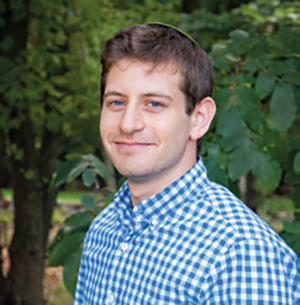
Conventional interpretations of Nadav and Avihu’s fate in this week’s parsha suggest that individual religious expression is disapproved of by God. The standard read of this story suggests that the lesson to be learned is that when individuals explore in religious settings in any way outside of the strict laws set out by God, they will be punished. However, there are many problems with this read of the story. For starters, why would God punish two people so severely for bringing the wrong type of sacrifice in service of Him?
It is not only our modern humanist sensibilities that seem concerned with the death of Nadav and Avihu. Many commentators are indeed bothered by this issue.
There are two basic approaches taken by the commentators. One approach suggests that the severity of God’s response demands that we find a sin, hinted to by the verses, that would be severe enough to warrant this punishment. This approach, suggested by the Talmud Sanhedrin and other sources, suggests that Nadav and Avihu were indeed punished, but fairly so, for they had deeply sinister intentions. One talmudic story (Sanhedrin 52b) goes as far as implying that the brothers were planning a coup and were dealt with by God accordingly.
The second approach to this issue doesn’t see Nadav and Avihu’s death as a punishment at all. Rashi, quoting Vayikra Rabbah 12:2, imagines Moshe speaking of Nadav and Avihu as the beloved of God, and even greater than Moshe and Aharon themselves. Rav Mordechai Yosef Leiner of Izbica (Ishbitz), commonly known as the Mei Hashiloach, suggests that Nadav and Avihu died not from a form of punishment of a vengeful God, but from knowing God too intimately. Nadav and Avihu were so overwhelmed with their love for God that they passed away. In the Bible, too close an interaction with the divine can kill you by its intensity; one cannot “see” the divine and live.
But the death of Nadav and Avihu is not the end of the story of individual religious experience in the Torah; it is the beginning.
Looking at the chapters preceding this story, the context for Nadav and Avihu’s actions becomes clear. Throughout the vast majority of Sefer Shemot, the Torah addresses the nation as a whole, as the young Israelite nation is busy reviewing detailed instructions for the building of the Mishkan, the physical structure that will house God’s presence. Moreover, in the first eight perakim of Sefer Vayikra, the nation receives precise instructions on how to serve God in the Temple. This culminates in the ninth perek, where Moshe and Aharon bless the people as a whole and make an offering, which is consumed by the fire. The people fall on their faces in awe. Everything seems to be going well.
Yet, not two verses later, the Torah uses the exact same language of consuming fire to describe Nadav and Avihu’s death. Clearly, the climax of the communal religious experience at the Temple and individual religious experiences of the brothers are linked and in tension.
To me, it seems that the tension between these two experiences is the tension between the individual religious experience on the one hand, and the communal religious experience on the other. For so long the Jewish people’s only relationship with God was channeled through a communal religious experience directed through Moshe and Aharon. It was only natural that individuals would strive to create their own personal religious experience with God. Nadav and Avihu may have felt the intense yearning of a spiritual seeker and explorer without any healthy framework to do so. Although their attempt may have been inadequate, it certainly gives rise to the rest of the parsha. It is for this reason that the rest of the parsha begins to discuss individual ideals of kedusha, of holiness, to begin to allow every individual to grapple with their own relationship with God.
A synthesis between individual and communal religious expression was not successfully reached with Nadav and Avihu, and we continue to struggle with this as a people. Growing up, I felt part of a strong communal religious experience, but over my time spent in Israel on my gap year, I learned for the first time what it meant to be a spiritually active individual beyond the communal prayer services. Writings from Rebbe Nachman, Rav Kook, Rav Menachem Frohman and Rav Dov Zinger began to populate my bookshelf and my mind, as I pursued my individual relationship with God and began to see myself as a religious individual. Over the past five years in America, however, I have again remembered the importance of community and communal religious experience, as many responsibilities begin to take hold of me outside of my religious journey.
I am convinced that our students can passionately explore spiritually rich and meaningful Judaism even in high school, without waiting for the famed Israel year to expose them to new ideas and feelings of religious identity. I continue to see the need to educate both for an audacious spiritual creative energy in America, as difficult as it may be, as well as for a respect and understanding of the power of our communal religious experiences. There are many new programs in Jewish education educating toward a deeper understanding of what it means to be a human and Jew, and I am proud to be a part of one of them, teaching at the Idea School’s Inquiry Beit Midrash. I hope these thoughts contribute to this conversation, and that Jewish educators continue to grapple with these issues as a unified Jewish people.
By Aryeh Laufer
Aryeh has been a part of development of the IDEA School since its beginning, and is excited to lead the Inquiry Beit Midrash. Aryeh believes a meaningful Judaism embraces questioning, and is excited to nurture students’ natural inquiry with the wealth of Jewish texts and challenging ideas within our tradition.










